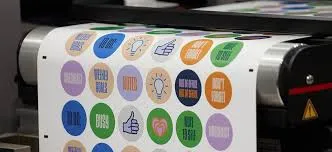The Rise of Disposable Food Packaging Containers Convenience versus Sustainability
In today's fast-paced world, the demand for convenience has led to the increasing popularity of disposable food packaging containers. Whether it's takeout from a favorite restaurant or pre-packaged meals from the grocery store, these containers have become integral to the way we eat and interact with food. But as our reliance on disposable packaging grows, so does the concern for its environmental impact.
The Convenience Factor
Disposable food packaging offers a myriad of conveniences for both consumers and food service providers. For consumers, the ease of grabbing a meal on the go cannot be understated. With busy lifestyles, many people find that disposable containers provide a quick, no-fuss solution to meal times. They eliminate the need for dishes, reduce cleanup time, and allow for easy transportation of food. This is particularly advantageous in urban settings, where on-the-go meals are a necessity for many.
For food businesses, disposable containers can streamline operations. They reduce the need for washing dishes, which can save time and labor costs. With a variety of options available—from biodegradable containers to plastic and aluminum—businesses have the flexibility to choose packaging that suits their needs and aligns with their branding.
Environmental Concerns
However, the convenience of disposable food packaging comes at a significant environmental cost. The production and disposal of these containers contribute to a range of ecological issues. Many disposable containers are made from non-renewable resources and are not designed for reuse. For instance, traditional plastics take hundreds of years to decompose, leading to overflowing landfills and increased pollution in our oceans.
Moreover, the manufacturing process for disposable containers often involves harmful chemicals and processes that contribute to greenhouse gas emissions
. This has prompted growing concern from environmental groups and consumers alike about the sustainability of disposable packaging.disposable food packaging containers

The Shift Towards Sustainability
As awareness of these environmental challenges grows, there has been a noticeable shift toward more sustainable packaging solutions. Many manufacturers are now producing disposable food containers from eco-friendly materials like plant-based plastics, recycled paper, and even compostable materials. These innovations aim to reduce the environmental footprint associated with food packaging.
Restaurants and food businesses are also beginning to adopt more environmentally friendly practices. Initiatives such as using reusable containers, offering incentives for customers who bring their own packaging, and investing in recycling programs are becoming more common. These steps not only alleviate some of the environmental burdens but also resonate with increasingly eco-conscious consumers.
Consumer Responsibility
As individuals, it is essential to acknowledge our role in this equation. While the convenience of disposable food packaging is appealing, we can make choices that support sustainability. Opting for takeout from establishments that use biodegradable or recyclable containers is one way to minimize our impact. Additionally, bringing reusable containers when ordering food can significantly reduce waste.
Education also plays a critical role in shifting consumer behavior. Understanding the impact of disposable packaging can motivate consumers to make more informed choices, supporting businesses that prioritize sustainability.
Conclusion
The rise of disposable food packaging containers reflects a broader trend in our society towards convenience. However, as we embrace the benefits of these products, it is crucial to confront the environmental implications that accompany their use. By supporting sustainable practices and making incremental changes as consumers, we can help pave the way for a healthier planet while still enjoying the convenience that disposable containers provide. The path forward lies in balancing our need for convenience with our responsibility to the environment, ensuring that our food packaging choices support a sustainable future.



